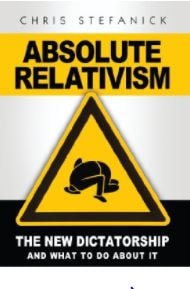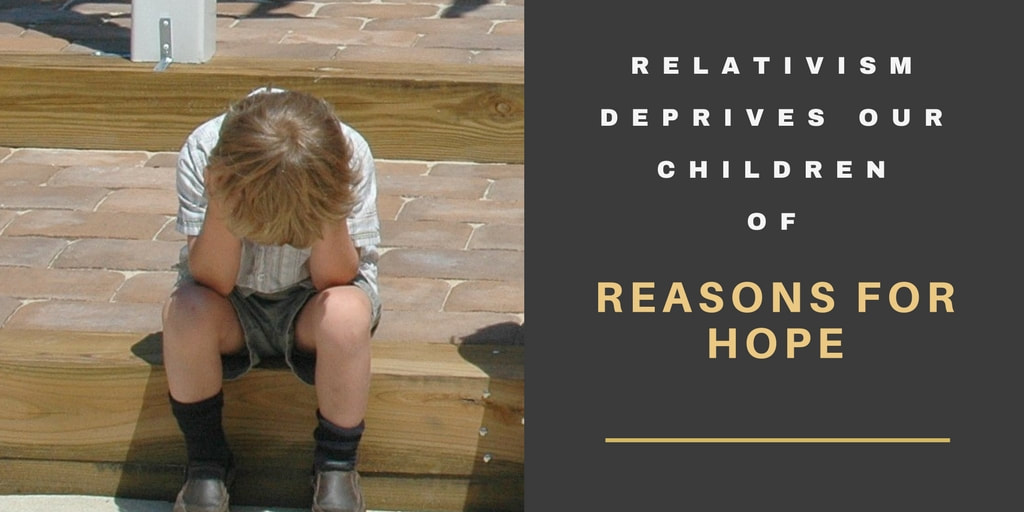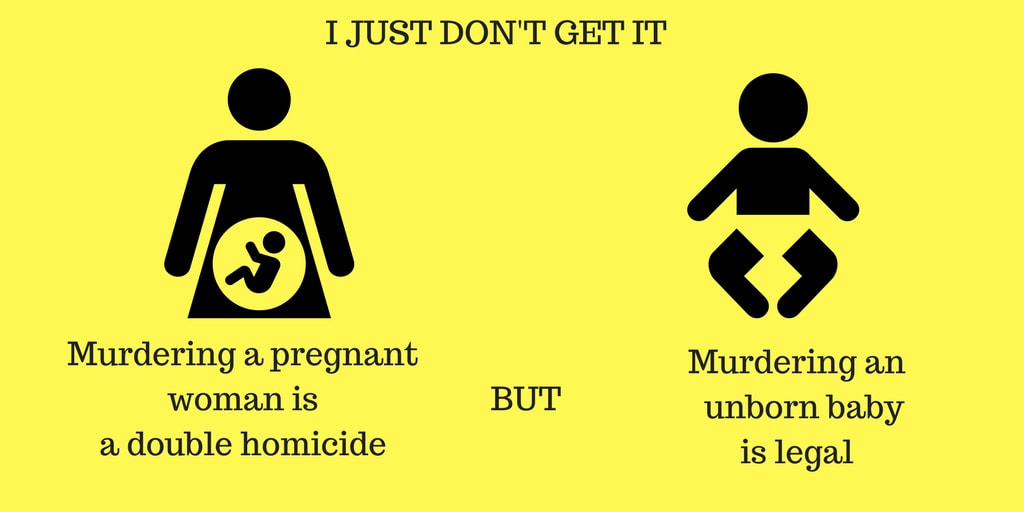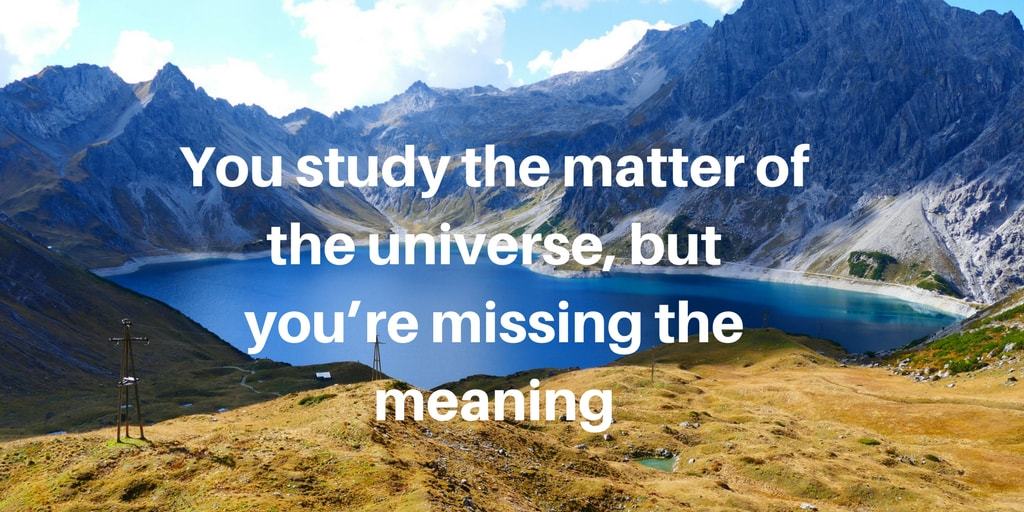For Christians the tidal wave of secularism sweeping over the world today is both confusing and terrifying. What on earth is going on and are we powerless to stem it?
Absolute Relativism is a literal Godsend for these times. Within only 59 pages, Chris Stefanick clearly defines absolute relativism and logically explains how illogical it is. He points out the idiocies of this ‘new dictatorship’ so eloquently that the reader is hard-pressed to understand why people ever fall for it.
But fall for it they do. Mr. Stefanick helps us understand this insidious enemy and stand against it.
Do Relativists Even Know What Relativism Is?
“Relativism is the idea that there is no universal, absolute truth, but that truth differs from person to person and culture to culture. In other words, truth is relative to what each person or culture thinks.”
It’s not hard to see how dangerous such a philosophy is, but as Mr. Stefanick says, “It’s widely accepted because it’s rarely scrutinized. Since it has worked its way into the fabric of our society, it is simply assumed to be true.”
The fundamental premise of relativism is that it “is absolutely true for everyone that nothing is absolutely true for anyone.”
This statement is self-contradicting: “If it’s true for everyone that nothing is true for everyone, then the assertion “Nothing is true for everyone” also isn’t true for everyone!”
Running from the responsibility to give the next generation a true moral compass is depriving our children of purpose and hope.
Consider what Pope John Paul II says in this quote from the book:
“False teachers, many belonging to an intellectual elite in the worlds of science, culture, and the media, present an anti-gospel…their only certainty is that there is no definite truth, no sure path … they advocate an approach to life that has led millions of young people into a sad loneliness in which they are deprived of reasons for hope and are incapable of real love.”
Futher, the booklet quotes Pope Benedict XVI:
“A spiritual desert is spreading: an interior emptiness, an unnamed fear, a quiet sense of despair. This emptiness is the inevitable result of relativism, which separates us from life’s most profound realities. This is, perhaps, its most tragic effect.”
Mr. Stefanick gives the latest suicide statistics among teens: almost 15 percent had seriously considered it, and close to 7 percent had actually attempted to kill themselves. Even allowing for mental illness as the cause of some of this, he writes “a percentage that high represents a more far-reaching societal problem - a crisis in meaning and a poverty of purpose.”
Many parents mistakenly think that loving their children means to accept them without guiding them in the truth. They think they are ‘setting them free.’ But this is moral abandonment, it is love without truth, and a “unique form of cruelty.”
The author states that abortion could only have become legal in a relativist society.
When everyone accepts objective principles, such as the dignity of all human beings and the natural law, the right to life is assured for all.
But when morals are no longer based on objective facts, “rights come to be regarded as favors granted by the state or by a majority vote” as is happening “with what was once seen as the inalienable right to life.”
Mr. Stefanick cites Archbishop Charles J. Chaput: “No rights are safe when the right to life is not.”
The author explains how abortion has become legal in a society where nothing is wrong in and of itself. Pro-abortionists “claim that abortion should be legal in the name of ‘freedom of choice,’ not necessarily because it’s a moral decision. …. Abortion was made legal by relativism and probably remains so because of it.”
He points out the sad truth that although most Americans are against abortion, they do nothing to prevent it, because they are unwitting relativists, not wanting to “impose their morality” on others.
“And so it seems that a multitude of Americans think an act is murder but won’t do anything about it.”
How sad that this ‘dogma’ of relativism, which most people don’t even understand or challenge, has become a protected new religion!
Tolerance is touted as the new virtue. “Purity, piety, temperance, wisdom, and courage are all optional.” Yet most people don’t even know what tolerance is.
Here I’ve added the Miriam-Webster definition of tolerance pertinent to our context:
“1: capacity to endure pain or hardship: endurance, fortitude, stamina
“2 a : sympathy or indulgence for beliefs or practices differing from or conflicting with one's own
b : the act of allowing something: toleration”
As Mr. Stefanick says, “Tolerance is enduring ideas or actions that you don’t agree with.”
But the relativist’s definition of tolerance is “not strongly disagreeing with anyone on moral or religious issues.”
Based on that, I'd like to add the following imaginary conversation:
'If you disagree with me, you’re being intolerant,’ says the relativist.
The Christian replies, ‘In reality, you’re being intolerant because you don’t show sympathy for my view of things. I’m not being intolerant simply because I don’t see the world as you do.’
‘But I’m right and you’re wrong!’
‘I thought there was no absolute right or wrong? And if we’re all allowed to have our own truths - the essence of relativism - then why am I being ‘intolerant’ if I have a different truth from you?’
Chris Stefanick explains how harmful genuine intolerance is “if it’s used to censor ideas, coerce people into agreeing with you, or if it takes the form of violence.”
He cites examples where “relativists can be more intolerant than those who believe in absolute truth.” These include the ACLU backing lawsuits “to forcibly quash any mention of God out of the public square to cater to a few intolerant atheists,” and the “attacks on conscientious objection rights that currently allow Catholic doctors and hospitals to refuse to participate in providing abortions.”
He shows “how relativism can produce the polar opposite of tolerance because it removes objective reasons for people to practice restraint against those they disagree with.” (My italics)
The booklet cites the clear teaching on tolerance from the Second Vatican Council:
“The Church reproves, as foreign to the mind of Christ, any discrimination against men or harassment of them because of their race, color, condition of life, or religion.”
This is authentic tolerance.
Truth
Mr. Stefanick challenges scientists: “Why limit your discoveries about the universe to the realities inside a petri dish? You study the matter of the universe, but you’re missing the meaning.”
When Christians claim to be 100 percent right about God, it should not be seen as saying that everyone else is wrong, nor as disrespecting people of other religions. Christians are not calling non-Christians unholy. “Nor is theological correctness the same as holiness. The devil, for instance, is an expert in theology.”
To the question “Doesn’t it smack of pride to claim to know the truth?” he responds, “Not as much as it smacks of pride to claim you can create your own truth - your own moral and spiritual universe.”
He explains that in “considering whether an action is right or wrong, we should follow the law: natural law and divine law.” He describes divine law as what God has directly revealed to us, and natural law as “the moral principles ‘written’ into our very nature.” Even children on the playground have a natural sense of fairness and unfairness.
Relativism, with its rejection of shoulds and should nots, is unnatural.
Moral realism is natural, “a recognition that there are ethical principles we all should live by” and it’s “in our DNA.”
But, some may argue, “Isn’t relativism just about us growing beyond antiquated moral views?”
Mr. Stefanick responds that, far from being outdated and antiquated, right ideas should be embraced as having “stood the test of time. The passage of time doesn’t make an ethical concept wrong or obsolete. You don’t use ethics to tell time. Using a clock to judge moral issues is just as foolish. …The truths identified in philosophy (and theology) are timeless. They can be polished, but they don’t rust.”
Faith
We can be brought to the threshold of faith through reason, but “reason can’t cross the actual threshold for us.” Because God is the object, faith “is not a science but a relationship. This is why faith is brought about by an act of will, not only of the intellect.”
The author uses marriage as an analogy.
A man can rationally look at all the options available to him and rule them out except for the one he wishes to marry. He cannot scientifically check out everything about this one woman, but based on what he considers sufficient evidence, “her beauty and goodness leads (sic) you to make the decision to give her your life.”
Faith is not irrational but supra-rational - “beyond the limits of reason,” like the “parts of our universe that are beyond the limits of our sight. That doesn’t mean they aren’t there.” Just as you jump into a marriage you cannot fully understand, “once you have enough evidence, you jump anyway” into faith.
Mr. Stefanick adds that the atheist makes a leap of faith, too: it is not possible to scientifically prove that God doesn’t exist. The atheist has to choose to believe in God’s non-existence.
Christianity
To the question “What makes you so convinced about Christianity?” comes the answer:
“If someone rises from the dead by his own power, I’ll believe anything he says. The founder of Christianity rose from the dead.”
Mr. Stefanick relates the story of Harvard Professor Greenleaf, who wanted to prove that the Resurrection couldn’t possibly stand in a court of law. The problem was that eyewitnesses are a certain way to close a case, and he discovered that there were many eyewitnesses to Christ’s Resurrection.
Not only that, but they were willing to die rather than recant their testimony and suffered horrible deaths for declaring the fact that they had seen the risen Christ.
Greenleaf’s attempt to debunk the Resurrection story ended in his becoming a Christian.
Finally, faith helps us make sense of tragedy. “Like a faithful spouse, you can continue to choose faith in a loving Author of life over hopelessness.”
This is only a small sampling of the rich truths that await you in Chris Stefanick’s powerful treatise. He exposes relativism for the monster it really is.
He also gives us concrete ways to fight back against this evil in our society with his Seven Ways to Battle Relativism. I strongly urge you to get a copy of the booklet to find out what they are. You’ll be glad you did!
Absolute Relativism is available as a booklet for $2.95 or as an eBook for $1.79 from ShopCatholic.com.
Available as a FREE CD from DynamicCatholic.com.
P.S. I don’t get compensated if you purchase Absolute Relativism but Chris Stefanick wants us all to spread the word, and so do I!






 RSS Feed
RSS Feed